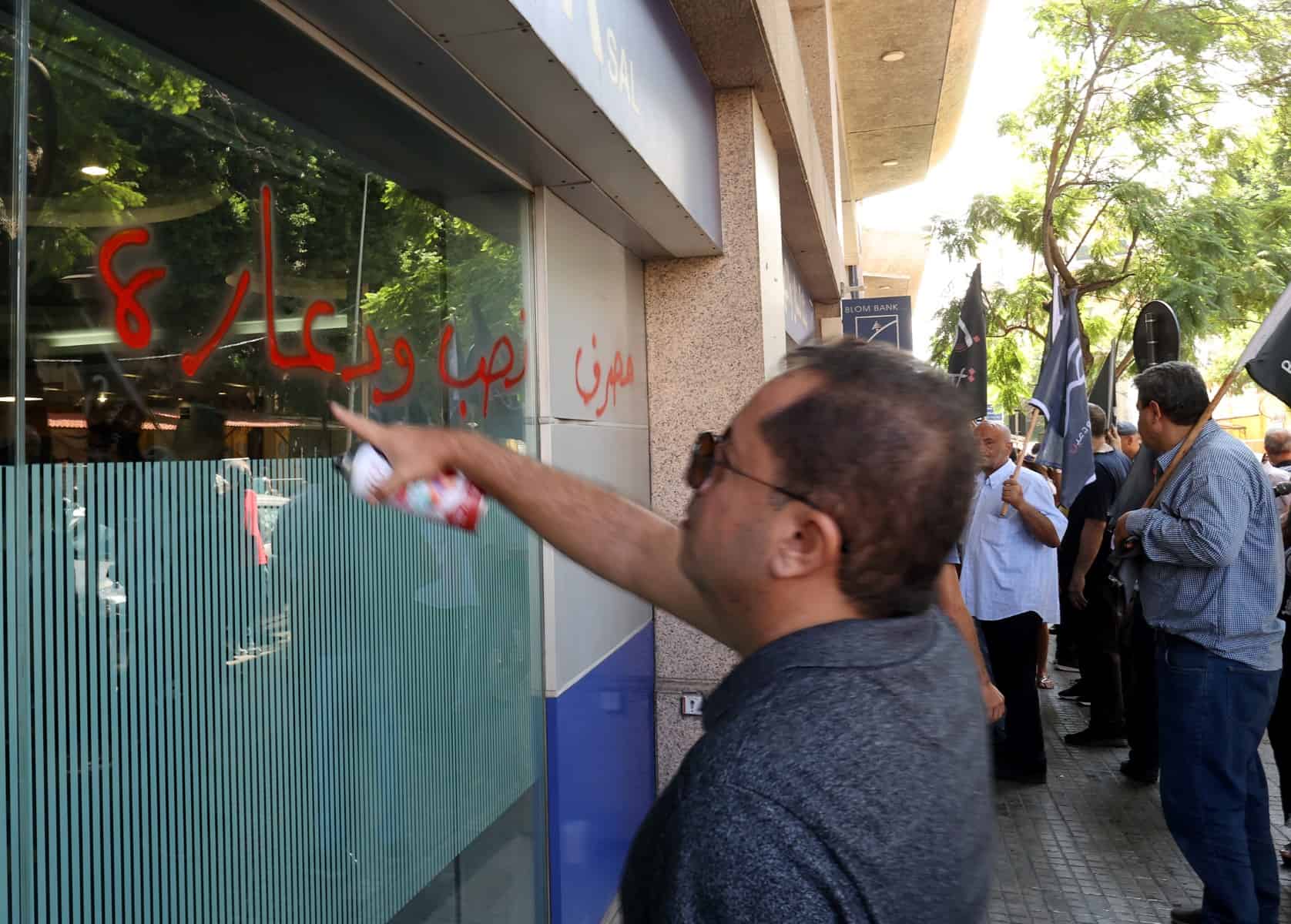A Lebanese woman held up a Beirut bank on Wednesday and reportedly walked out with thousands of dollars to fund what she said was hospital treatment for her ill sister.
It was just the latest in a string of heists as Lebanese depositors, whose savings have been devalued and trapped in banks for almost three years, take matters into their own hands.
Sali Hafiz streamed a live video of her raid, in which she could be heard yelling at employees to release a sum of money while entrances to the bank were sealed.
“I am Sali Hafiz, I came today… to take the deposits of my sister who is dying in the hospital,” she said in the video.
“I did not come to kill anyone or to start a fire… I came to claim my rights.”
The woman instantly turned into a folk hero on social media in Lebanon, where many are desperate to access their savings and furious at a banking sector perceived as a corrupt cartel.
A second woman who appeared in the video claimed they had secured more than $13,000, while a man standing beside her carried what appeared to be stacks of banknotes wrapped in plastic.
An AFP correspondent at the scene said gasoline was poured inside the bank during the heist and a gun was later found on the ground, although it was not immediately clear if it was real.
The correspondent said Hafiz and suspected accomplices managed to escape through a smashed window out the back before security forces arrived.
The heist lasted under an hour.
Last month, a local man received widespread sympathy after he stormed a Beirut bank with a rifle and held employees and customers hostage for hours to demand some of his $200,000 in frozen savings to pay hospital bills for his sick father.
He was detained but swiftly released.
In January, a bank customer held dozens of people hostage in eastern Lebanon after he was told he could not withdraw his foreign currency savings, a source at the lender said.
Local media reported that the customer was eventually given some of his savings and surrendered to security forces.
Lebanon has been battered by its worst-ever economic crisis since 2019. The local currency has lost more than 90 percent of its value on the black market, while poverty and unemployment have soared.








